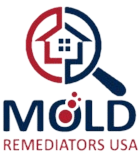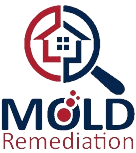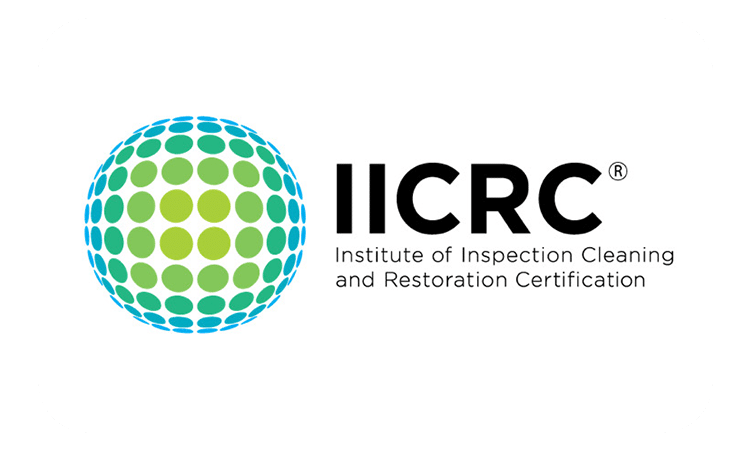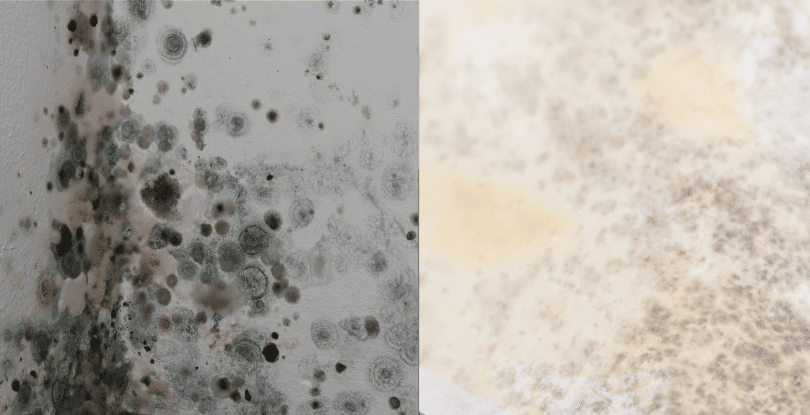Essential Mold Removal Certifications in the USA
I naively thought that it would be relatively easy just to drive around with a garden sprayer blowing off mold until I found out there are numerous certifications and fields of knowledge that you must become expert in to do this properly and painlessly. My first foray into the mold-remediation business involved an old farm house in which the occupant complained of a musty odor in a basement. It was my first actual exposure to mold. Recently, a friend of mine took a vacation and asked me to look after his home to make sure it did not fall down. When I entered, the first thing I smelled was must.
They should recognize that a certification is far more than a simple claim to credibility. Most of all, they should recognize that, as well as knowing a lot about mold, getting certification in mold removal in the USA means passing through a rigorous training program that demonstrates adherence to safety and health protocols.
Many courses feature lab time and mold-removal hands-on experience And, as important as the lab time was, I also had to get familiar with the science behind mold, how it impacts health and structures, and how to assess contamination. As a result, I took several courses covering mold and indoor air-quality assessment. These included courses that stretched from basic mold identification and molded-house-remediation principles to finer topics such as hygienic and ecological mold assessment or the science behind the removal of mold from gypsum board. Combined, those courses provided an excellent basis for my further advanced training as a mold-removal professional.
I knew I wanted to get mold remediation certification. Mold remediation certification is an important step in the licensed process; once you’ve finished mold removal school, you’re essentially ready for your license, but to become a mold remediation technician, you can take a more intensive course that goes above and beyond just how to remove mold, and learn about remediation: how to assess how widespread a mold problem is, what biological types of mold are the most potentially dangerous, how to remove the mold while pre-venting further intrusion from the fungus. One class in particular in this second course was spent just going around in circles wearing all the protective clothing and going into a sensory-deprivation room to learn how to scrub with a sponge and plastic bucket, removing mold for what seemed like an eternity. It made everything real and tangible.
The Institute of Inspection, Cleaning, and Restoration Certification is a standard-setting (non-accredited) and certifying organization established in 1972. It represents more than 3,000 certified companies and 40,000 industry professionals. It includes experts from various divisions of cleaning and restoration, operating in 20 countries and conducting research and wrote guides. The IICRC also offers training programs and certification in flooring maintenance, flooring installation, carpet repair, upholstery cleaning, carpet cleaning, odor control, textile cleaning, water damage restoration, and fire and smoke restoration.
1) Standard Setting: The IICRC develops and revises industry standards for cleaning, inspection and restoration processes. These industry leading standards are recognized and utilized throughout the world.
2. Certification Programs: The IICRC provides certifications for providers in water damage restoration, fire and smoke damage restoration, carpet cleaning, upholstery cleaning and – particularly of importance to the mold story – mold remediation.
3. Education and Training: The IICRC offers educational materials, curricula, training courses and workshops for industry professionals to stay up to date with the latest techniques, technologies and best practices.
4. Professional Credibility: IICRC certification signifies professionalism. Your clients will appreciate knowing that, by hiring the certified professional, they are able to take advantage of the most advanced training and standards of care that the industry offers.
For mold remediation, the IICRC offers specific certifications such as:
Applied Microbial Remediation Technician (AMRT): This is for professionals who perform remediation work on mold and sewage with a course covering techniques and safety measures around mold and sewage remediation.
Mold Remediation Specialist (MRS): not a direct IICRC certification, though widely recognized in the industry, and can be accompanied by appropriate IICRC training courses.
The IICRC plays a critical role in the industry as a standards setting body and as the primary educational resource for professionals who need to be up to date on the appropriate tools and procedures to meet the challenges of cleaning and restoration. Their certifications, standards and training information are found at their website: (https://www.iicrc.org).
Another component of my training was becoming a certified organic mold tester, an important prerequisite to testing homes or buildings for mold. This certification enabled me to learn how to take proper samples and test with remediators’ equipment, interpret results on lab slips, and furnish my clients with specific and accurate information regarding their mold problems. Mold testing calls for precision, and certification ensured my clients that I wasn’t making wild guesses about what was going on in their home.
State-recognized certification for mold inspection is another key credential, one that also fuses neatly with mold testing and remediation. The inspector is usually the first one to set foot in the building. He needs to see if there’s a problem, and ascertain the cause of any visible mold growth. That means not just noticing the mold itself but mysterious clues and hidden catastrophes. You have to be a bit of a detective.
Mold-handling certification is an issue that few people know they should be focused upon. That is, a certified mold-remediator understands how to contain the mold from within the area in which it is located and cleanup it in a manner that doesn’t cause for future growth of mold spores to be blown about the property itself and beyond, either airborne or in particulate. We once had a job working in a mold-infested structure. It was my mold-handling certification that allowed me to understand the best ways to contain the area and use tools to help prevent cross-contamination.
A closely related and valuable opportunity for the budding mold pro is to become certified in mold abatement. This certification prepares mold pros to carry out work for the total removal of mold and the decontamination of the environment for reoccupation. Abatement work, also known as remediation, involves cleaning, decontamination and preventing the possibility of mold reestablishment, following a thorough system of steps. It is during mold abatement class that the intricacy of mold removal was revealed to me – and that the technique you used was everything.
Over the years, these certifications for me have not been ‘just’ paper certificates; they have represented a continuation in my service and sharing knowledge to do the best job possible. For us, each certification gave us another step toward the ability to solve more and more of what mold has to offer. For our clients, these certifications have helped to fill the void of knowing that someone who is ‘different’ can be taken seriously, while also building the validity of the experience gained.
The following are the most common mold certifications and the certifying bodies in the United States, which are required at them:
Certified Mold Inspector (CMI)
Authority: International Association of Certified Home Inspectors (InterNACHI)
Description: This certification is designed for individuals conducting mold inspections in both residential and commercial buildings.
Certified Mold Remediator (CMR)
Authority: American Council for Accredited Certification (ACAC)
Certification: Certification that you have an enhanced level of understanding on how to properly remove mold in a safe and effective manner.
Certified Microbial Consultant (CMC)
Authority: American Council for Accredited Certification (ACAC)
Description: The certification is for consultants who work with mold and microbial issues, and who serve as an expert resource for identifying and eliminating mold problems.
Certified Microbial Investigator (CMI)
Authority: American Council for Accredited Certification (ACAC)
Certification: For those who investigate and identify microbial and other indoor environmental quality problems. This certificate certifies proficiency in microbial sampling and data interpretation.
Certified Indoor Environmentalist (CIE)
Authority: American Council for Accredited Certification (ACAC)
Certification: This certifies you to perform comprehensive indoor environmental assessments and mold assessment specifically, as well as the ability to solve indoor air quality issues.
Certified Indoor Air Quality Professional (CIAQP)
Authority: American Council for Accredited Certification (ACAC)
Certification: a person who holds this certification demonstrates they recognize indoor air quality problems (for instance, mold) and provides appropriate recommendations and solutions.
Certified Mold Professional (CMP)
Authority: International Association of Certified Indoor Air Consultants (IAC2)
Description: This certification focuses on comprehensive mold inspection, testing, and remediation processes.
Mold Remediation Specialist (MRS)
Authority: National Organization of Remediators and Mold Inspectors (NORMI)
Plaque; mold; Contamination; Dangerous. That’s what this certification says I have. It says these are the critical skills: how to safely contain, remove and prevent this slippery enemy: mold.
Such certifications and licensing guarantees that mold inspection, testing and remediation professionals receive proper training and knowhow, as well as being well-versed in the standards and regulations of the mold industry.
Mold remediation is such a dynamic field, new techniques and test methods and improvement in standards are developing all the time. Having these certifications keeps me abreast of the latest and helps me stay a step ahead to provide a high level of work for those who need our services. The various certifications and credentials around mold removal are not simply ‘accomplishments’ on my résumé (although they are important) but are commitment statements I make to competency, safety and health.
Looking back, I am also thankful to my experience and hard training, which prepared me on a professional level. mold can be a formidable enemy, but with sufficient knowledge, certifications and training it can be vanquished with great confidence. For anyone looking to make a career of this type of work, these certifications are not just recommended, they are essential if you want to be a professional instead of a cowboy.
Do You Have Mold Issues? If You Think You Do, Call Us Toll Free, 1-855-947-6167 – For a Free, No Obligation Quote by a Professional Mold Remediator Near You!




